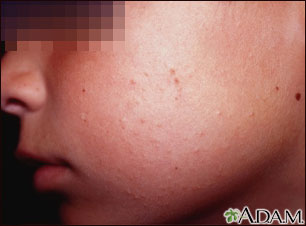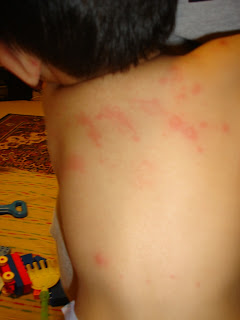Your Kiddo Won't Eat?- It May Be More than Pickiness...
Yesterday, I attended an excellent lecture series on eosinophilic esophagitis, a relatively newly recognized disease in adults and children which results in difficult to control heartburn symptoms and difficulty eating.
Eosinophilic esophagitis results from abnormal accumulation of inflammatory cells in the lining of the esophagus (food pipe), and has a strong relationship to food allergy.
If you or your child have heartburn symptoms which have not improved with a proton pump inhibitor (examples include Prilosec, Prevacid, or Protonix, among others), you may be experiencing more than reflux. Ask your primary care physician if you might benefit from a referral to a gastroenterologist for an endoscopy (a video evaluation of the inside of your esophagus, stomach, and/or intestines).
If a biopsy reveals high numbers if eosinophils (specialized white blood cells which are highly involved in allergic inflammation), you may benefit from further evaluation and dietary management. Approximately 75% of patients managed with a specialized diet (based on food prick and patch testing) had significant clinical improvement.
Eosinphilic esophagitis is rare, but the prevalence of the disease appears to be growing. Because the symptoms can be confused for severe reflux, the diagnosis is often delayed. This delay can in some cases lead to severe scarring and stricture (narrowing) of the esophagus, resulting in a lifetime of difficulty eating.
Learn more about this condition at http://www.apfed.org/
Eosinophilic esophagitis results from abnormal accumulation of inflammatory cells in the lining of the esophagus (food pipe), and has a strong relationship to food allergy.
If you or your child have heartburn symptoms which have not improved with a proton pump inhibitor (examples include Prilosec, Prevacid, or Protonix, among others), you may be experiencing more than reflux. Ask your primary care physician if you might benefit from a referral to a gastroenterologist for an endoscopy (a video evaluation of the inside of your esophagus, stomach, and/or intestines).
If a biopsy reveals high numbers if eosinophils (specialized white blood cells which are highly involved in allergic inflammation), you may benefit from further evaluation and dietary management. Approximately 75% of patients managed with a specialized diet (based on food prick and patch testing) had significant clinical improvement.
Eosinphilic esophagitis is rare, but the prevalence of the disease appears to be growing. Because the symptoms can be confused for severe reflux, the diagnosis is often delayed. This delay can in some cases lead to severe scarring and stricture (narrowing) of the esophagus, resulting in a lifetime of difficulty eating.
Learn more about this condition at http://www.apfed.org/



Comments
Post a Comment
Thanks for taking the time to comment on this blog's posts! Let's keep the discussion engaging and free of frivolous advertising or vulgarity. It's a family show, folks!